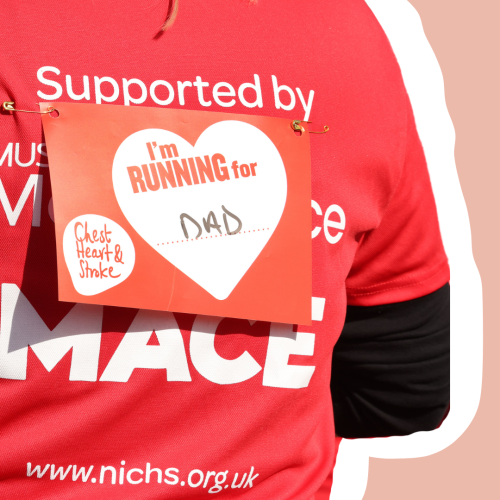
If someone close to you has a chest, heart, or stroke condition, such as if they have a heart attack or stroke, or something like asthma or COPD, it can be a lot to take in. You might feel worried, confused, or even a little scared — but you’re not alone. Many young people go through this, and we’re here to help.

💙 How Might They Be Affected?
Chest, heart, and stroke conditions affect everyone differently. The person you care about might:
Feel more tired or weak than before – They may need to rest more often, take breaks during activities, or have less energy to do the things they used to enjoy.
Have difficulty breathing – If they have a lung condition like asthma or COPD, they might get breathless easily and need an inhaler or oxygen to help.
Struggle with everyday tasks – Things like walking up the stairs, carrying shopping, or even getting dressed might be harder for them than before.
Need to take medicine or have treatments – They might have to take pills, use an inhaler, or have regular check-ups with doctors.
Have mood swings – Being unwell can be frustrating, scary, and upsetting. They might feel sad, anxious, or even a little grumpy sometimes.
Have to change their lifestyle – They might need to eat healthier, stop smoking, exercise differently, or avoid stressful situations to help manage their illness or symptoms.
Not all illnesses are visible, so even if someone looks fine on the outside, they could still be struggling.
🤔 How Might It Affect You?
When someone close to you is unwell, it can change your life in different ways too. You might:
Worry about them – It’s natural to feel concerned, especially if they have to go to hospital, take lots of medication, or make big changes to their life.
Feel more responsible – You might find yourself having to help out more at home, looking after younger siblings, or doing extra chores.
Miss out on time together – They might not have the energy to do things you used to enjoy, like playing football in the park, or going on trips or days out.
Feel frustrated or sad – You might wish things could go back to how they were before, or feel upset when they can’t do the same things as before. That’s okay — it’s normal to have mixed emotions.
Be unsure about what to say – You might not know how to talk to them about their condition, or worry about saying the wrong thing.
Have to adjust to new routines – You may have to be quieter at home if they need rest, help them with things, or get used to new ways of doing things.
It's completely normal to feel all of this. You might even feel guilty for being frustrated or wanting more attention, but your feelings are just as important as theirs. Talking to someone you trust can really help.

💡 How Can You Help?
You don’t need to be a doctor or an expert to make a difference! Even small actions can help the person you care about feel supported. Here are some ways you can help:
Spend time together – Even if they can’t do all the things they used to, find new ways to have fun together, like watching a film, playing a board game, or just chatting.
Be patient – They might get tired easily or feel frustrated about their condition. Try to be understanding and give them the time they need.
Offer a helping hand – Can you bring them a glass of water, help with shopping, or do a small chore around the house?
Keep up healthy habits together – Eating well, getting fresh air, and managing stress are important. Maybe you could go on a short walk with them or help make a healthy snack.
Remind them to take it easy – They might try to do too much, even when they’re tired. Remind them it's okay to rest.
Learn more about their condition - Ask them how they’re feeling, or read more here on our website.
🫶 Looking After Yourself
When someone you love is unwell, it’s easy to focus on helping them — but your feelings and wellbeing matter too!
Here’s how to take care of yourself:
Talk About Your Feelings - You don’t have to deal with everything alone. Find someone you trust, like a parent, teacher, or friend, and let them know how you’re feeling. If you find it hard to talk, try writing your thoughts in a journal or drawing how you feel.
Take Time for Yourself - Spend time doing things you love, whether that’s playing sports, gaming, reading, or hanging out with friends. If you’re helping out at home, make sure to take breaks.
Manage Stress and Worries - If you feel overwhelmed, take deep breaths, go for a walk, or listen to music to help you relax.


